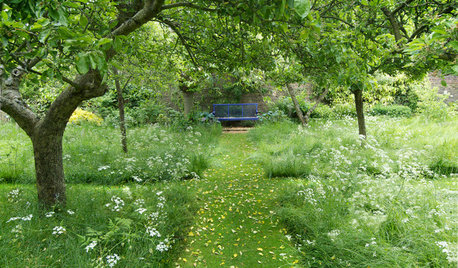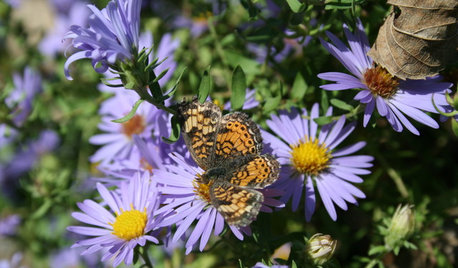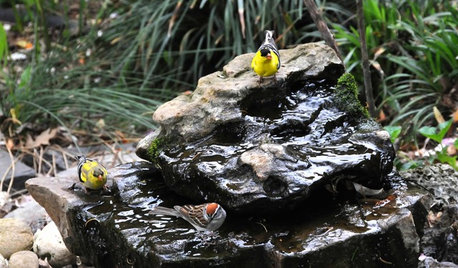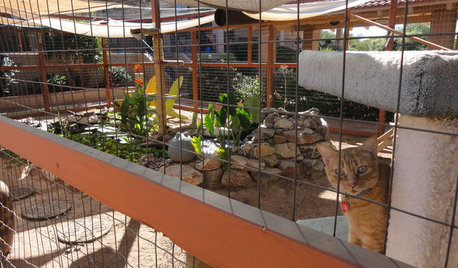Ferrets: where to find wild, indigenous? (for chipmunk control)
P POD
14 years ago
Related Stories

GROUND COVERSGive Your Lawn a Taste of the Wild
Consider the joys of an irregularly trimmed meadow lawn: It’s ecofriendly, visually interesting and still good for romping
Full Story
CURB APPEALHouzz Call: How Do You Hide Your Trash?
No one wants to see those trash and recycling bins. So where do you stash them while you wait for the garbage truck? Show us your designs!
Full Story

GARDENING GUIDES3 Ideas From the Evolving Garden
Life isn't predictable and neither is nature — and that's perfectly wonderful
Full Story
OUTDOOR PROJECTSBring In the Birds With a Homemade Bubble Rock
An avian expert from Southern Indiana shows how to make a burbling fountain that migrating birds will love
Full Story
GARDENING GUIDESLessons in the Rewards of Selfless Gardening
Let go of gardening for your own vision and watch the garden’s own true vision come forth
Full Story
FALL GARDENING7 Reasons Not to Clean Up Your Fall Garden
Before you pluck and rake, consider wildlife, the health of your plants and your own right to relax
Full Story
PETSSee a Deluxe 'Catio' Built for Feline Fun
Sixteen lucky cats get the run of a protected outdoor patio with ramps, steps and even a koi pond
Full Story
GARDENING FOR BUTTERFLIESGarden for Wildlife to Reap Rich Rewards
When you plant with animals and insects in mind, you make gardening easier, the planet healthier and yourself more present
Full Story
GARDENING GUIDESGarden-Friendly Native Alternatives to Overplanted Exotics
There are lots of gorgeous, wildlife-friendly native plants ready to make an appearance in your garden
Full StorySponsored
Your Custom Bath Designers & Remodelers in Columbus I 10X Best Houzz
More Discussions






denninmi
gardener1908
Related Professionals
Carlisle Landscape Architects & Landscape Designers · Sahuarita Landscape Architects & Landscape Designers · Arlington Landscape Contractors · Bainbridge Island Landscape Contractors · Cambridge Landscape Contractors · Edinburg Landscape Contractors · Galt Landscape Contractors · Golden Landscape Contractors · Leicester Landscape Contractors · Pahrump Landscape Contractors · Saint Paul Landscape Contractors · Vacaville Landscape Contractors · Westchester Landscape Contractors · Whittier Landscape Contractors · Redford Driveway Installation & Maintenancedenninmi
gardener_sandy
denninmi
bella_trix
P PODOriginal Author
gardener_sandy
denninmi
P PODOriginal Author
bruce2288
rj_hythloday
veggiefaery
gardener_sandy
neohippie
jcarr_vynall_com